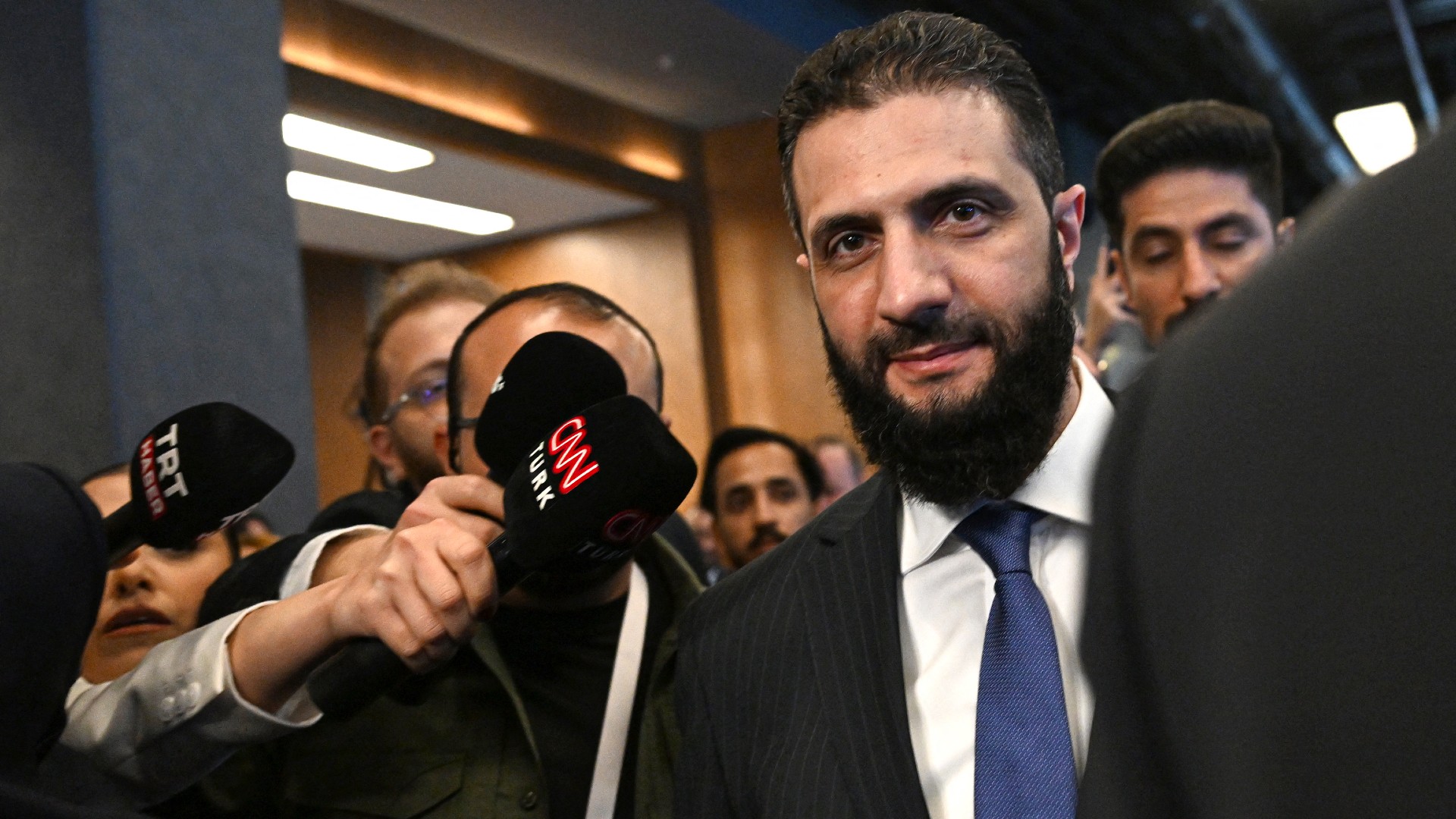Syria seeks Azerbaijans help to develop oil and gas fields

The presidents of Syria and Azerbaijan discussed how Baku could play a role in restoring Syria’s oil and gas sector in their first-ever meeting in Turkey last weekend, sources familiar with the issue told Middle East Eye.
Syrian President Ahmed al-Sharaa met his Azerbaijani counterpart Ilham Aliyev on the sidelines of the Antalya Diplomacy Forum, where they held talks on how to move forward after the fall of Bashar al-Assad's government in Syria.
One source familiar with the discussions told Middle East Eye that the Syrian government is interested in getting Azerbaijan’s state oil company, Socar, to help develop oil and gas fields in northeastern Syria, an area largely controlled by the US-backed Syrian Democratic Forces (SDF) armed group.
Earlier this month, Azerbaijan, a close ally of Israel, hosted deconfliction meetings between Turkish and Israeli officials, after Israel's military struck three military bases in Syria out of concern that Turkey's forces might seize them.
“Syria wants to counterbalance every regional player. Having both Turkey and Azerbaijan involved in operating the oil and gas fields would provide a sense of assurance regarding Israel,” said a second source familiar with the Syrian government’s thinking.
New MEE newsletter: Jerusalem Dispatch
Sign up to get the latest insights and analysis on Israel-Palestine, alongside Turkey Unpacked and other MEE newsletters
In January, Elchin Ibadov, CEO of Socar's Turkish arm Socar Türkiye, expressed the company’s readiness to participate in Syria’s energy sector.
“If Socar Türkiye is assigned a role aligned with the shared strategic interests of our countries - Azerbaijan and Türkiye - and there is demand for this energy, then it is our duty to fulfill it,” he said.
In March, SDF leader Mazloum Abdi and Sharaa signed a unification deal that effectively granted the Damascus government control over the energy fields. However, Sharaa's government has yet to physically take over the sites.
A regional official familiar with the SDF-Damascus agreement said Damascus plans to divide the income generated from the fields, with 70 percent allocated to the central government and 30 percent reserved for local needs.
A Turkish official noted that if Azerbaijan and Syria develop a closer working relationship, it could help Damascus alleviate Israeli concerns about the new transitional government, which Israeli officials have described as “terrorists”.
According to the Syrian news outlet Enab Baladi, Syria currently produces 110,000 barrels of oil per day, a sharp decline from the 385,000 barrels per day produced in 2010 before the civil war broke out.
Of this, 100,000 barrels come from fields under SDF control, while 10,000 barrels are produced by the new Syrian administration. The US Energy Information Administration (EIA) estimated in 2015 that Syria possessed 2.5 billion barrels of proved oil reserves.
For natural gas, Enab Baladi reports that the country produces 9.1 million cubic meters per day, down from 30 million cubic meters per day in 2010.
The new government currently produces 8 million cubic meters, while the SDF controls 1.1 million cubic meters. In 2015, the EIA estimated Syria’s gas reserves at 240 billion cubic meters, including both wet and dry gas.
Following the fall of the Assad government in December, most global energy companies withdrew from Syria. However, earlier this year, the EU and the UK lifted some sanctions on the energy sector, including those affecting several banks and state-owned oil companies.
The US also eased restrictions by issuing General License No. 24 (GL24), which permits transactions with Syrian governing institutions under their new rulers.
It also authorises the sale, supply, storage, or donation of energy - including petroleum, petroleum products, natural gas and electricity - within Syria.
The licence is valid for six months and is set to expire on 8 June, with the possibility of renewal depending on the situation on the ground.
The Wall Street Journal reported on Friday that Washington toughened its conditions for further sanctions relief, asking Sharaa's government to crack down on some armed groups and expel Palestinian political parties from the country.
Sanctions had previously forced 11 international companies - responsible for 49.6 percent of Syria’s total crude oil production in 2010 - to abandon operations in the country.
MEE has asked for comments both from the Azerbaijani and Syrian authorities.
An MEE correspondent contributed to this report.
middleeasteye.net